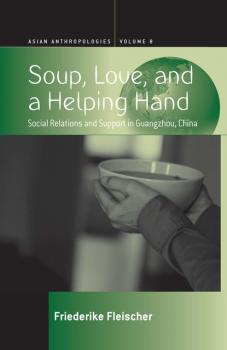Культурология
Различные книги в жанре КультурологияMoral Anthropology
A development in anthropological theory, characterized as the 'moral turn', is gaining popularity and should be carefully considered. In examining the context, arguments, and discourse that surrounds this trend, this volume reconceptualizes the discipline of anthropology in a radical way. Contributions from anthropologists from around the world from different theoretical traditions and with expertise in a multiplicity of ethnographic areas makes this collection a provocative contribution to larger discussions not only in anthropology but the social sciences more broadly.
Barter and Social Regeneration in the Argentinean Andes
Despite the pervasiveness of barter across societies, this mode of transaction has largely escaped the anthropologist’s gaze. Drawing on data from fairs in the Argentinean Andes, this book explores fairs’ embeddedness within religious celebration, arguing that barter is addressed as a sacrifice to catholic figures and local ancestors, and thus challenging a widespread view of barter as a non-monetary form of commodity exchange. Issues of value, identity, and exchange are considered, furthering our understanding of how social groups create themselves through material circulation.
An Australian Indigenous Diaspora
Some indigenous people, while remaining attached to their traditional homelands, leave them to make a new life for themselves in white towns and cities, thus constituting an “indigenous diaspora”. This innovative book is the first ethnographic account of one such indigenous diaspora, the Warlpiri, whose traditional hunter-gatherer life has been transformed through their dispossession and involvement with ranchers, missionaries, and successive government projects of recognition. By following several Warlpiri matriarchs into their new locations, far from their home settlements, this book explores how they sustained their independent lives, and examines their changing relationship with the traditional culture they represent.
Global Sustainability and Communities of Practice
Collaboration between experts and the public is vital for effective community engagement aimed at improving the lives of the most vulnerable in society, whether at the local or global level. Using case-based and theoretical chapters that examine rural and urban communities of practice, this volume illustrates how participatory researchers and students, as well as policy and community leaders, find ways to engage with the broader public when it comes to global sustainability research and practice.
Burgundy
Drawing on more than twenty years of fieldwork, this book explores the professional, social, and cultural world of Burgundy wines, the role of terroir, and its transnational deployment in China, Japan, South Korea, and New Zealand. It demystifies the terroir ideology by providing a unique long-term ethnographic analysis of what lies behind the concept. While the Burgundian model of terroir has gone global by acquiring UNESCO world heritage status, its very legitimacy is now being challenged amongst the vineyards where it first took root.
Dreams Made Small
For the last five decades, the Dani of the central highlands of West Papua, along with other Papuans, have struggled with the oppressive conditions of Indonesian rule. Formal education holds the promise of escape from stigmatization and violence. Dreams Made Small offers an in-depth, ethnographic look at journeys of education among young Dani men and women, asking us to think differently about education as a trajectory for transformation and belonging, and ultimately revealing how dreams of equality are shaped and reshaped in the face of multiple constraints.
Urban Dreams
Claudia Roth's work on Bobo-Dioulasso, a city of half a million residents in Burkina Faso, provides uniquely detailed insight into the evolving life-world of a West African urban population in one of the poorest countries in the world. Closely documenting the livelihood strategies of members of various neighbourhoods, Roth’s work calls into question established notions of “the African family” as a solidary network, documents changing marriage and kinship relations under the impact of a persistent economic crisis, and explores the increasingly precarious social status of young women and men.
Industrial Labor on the Margins of Capitalism
Bringing together ethnographic case studies of industrial labor from different parts of the world, Industrial Labor on the Margins of Capitalism explores the increasing casualization of workforces and the weakening power of organized labor. This division owes much to state policies and is reflected in local understandings of class. By exploring this relationship, these essays question the claim that neoliberal ideology has become the new ‘commonsense’ of our times and suggest various propositions about the conditions that create employment regimes based on flexible labor.
Soup, Love, and a Helping Hand
Despite growing affluence, a large number of urban Chinese have problems making ends meet. Based on ethnographic research among several different types of communities in Guangzhou, China, Soup, Love and a Helping Hand examines different modes and ideologies of help/support, as well as the related issues of reciprocity, relatedness (kinship), and changing state-society relations in contemporary China. With an emphasis on the subjective experience, Fleischer’s research carefully explores people’s ideas about moral obligations, social expectations, and visions of urban Chinese society.
The Witness as Object
In recent years, historical witnessing has emerged as a category of «museum object.» Audiovisual recordings of interviews with individuals remembering events of historical importance are now integral to the collections and research activities of museums. They have also become important components in narrative and exhibition design strategies. With a focus on Holocaust museums, this study scrutinizes for the first time the new global phenomenon of the «musealization» of the witness to history, exploring the processes, prerequisites, and consequences of the transformation of video testimonies into exhibits.









